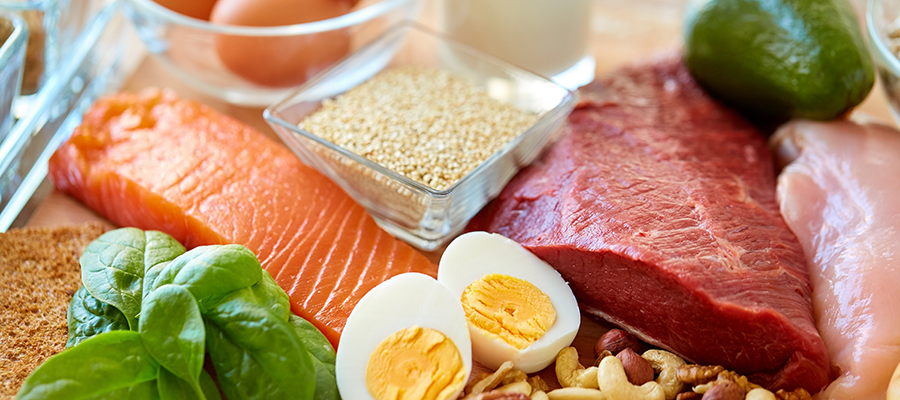
Eggs are a staple in many diets around the world. They’re not only versatile and delicious but also packed full of essential nutrients. Despite past controversies, research has shown that eggs are incredibly healthy and beneficial when incorporated into a balanced diet.
Eggs: Nature’s Multivitamin
The humble egg is often referred to as “nature’s multivitamin” because of its rich nutrient profile. One large egg contains a variety of vitamins and minerals, including Vitamin A, B vitamins (B2, B5, B12), Vitamin D, Vitamin E, selenium, and smaller amounts of almost every other vitamin and mineral required by the human body, including calcium, iron, potassium, zinc, manganese, Vitamin E, Folate, and more.
Protein Powerhouse

Eggs are a complete protein source, meaning they provide all nine essential amino acids that your body can’t produce on its own. A single large egg contains around 6 grams of high-quality protein. This protein helps in the building of muscle mass, boosting metabolism, lowering blood pressure, and optimizing overall health.
Brain Health
Eggs are a rich source of choline, a nutrient that is essential for brain health. Choline is used to build cell membranes and has a role in producing signaling molecules in the brain. Despite its importance, many people aren’t getting enough of this vital nutrient. By including eggs in your diet, you’re ensuring an adequate intake of choline.
Eye Health
Eggs contain two potent antioxidants, lutein and zeaxanthin, which accumulate in the retina of the eye. These antioxidants significantly reduce the risk of macular degeneration and cataracts, two very common eye disorders. Moreover, eggs are high in Vitamin A, deficiency of which is the most common cause of blindness in the world.
Heart Health
While it’s true that eggs are high in cholesterol, it’s important to note that dietary cholesterol does not necessarily raise cholesterol in the blood. In fact, eggs tend to increase “good” HDL cholesterol and modify “bad” LDL cholesterol to a subtype which is less likely to contribute to heart disease. Some studies have also found that eating eggs may help prevent stroke.
Weight Management

Due to their high protein content, eggs may help you feel fuller for longer, reducing overall calorie intake. Several studies have shown that an egg-based breakfast can cause up to 65% greater weight loss over eight weeks, compared to a bagel-based breakfast.
Eggs and Diabetes
Diabetes is a global health concern that affects millions of people. The link between eggs and diabetes has been a topic of much debate, with several studies indicating that eating eggs could increase the risk of developing the condition. However, it’s crucial to note that these studies are observational, meaning they can’t establish cause and effect.
On the other hand, several studies have shown that eggs can have beneficial effects on health markers in people with diabetes. A study showed that consuming a high-protein diet with eggs for breakfast improved blood sugar and cholesterol levels in people with type 2 diabetes.
Eggs: A Boon for Pregnant Women
Eggs are a beneficial food for pregnant women due to their high content of choline. As mentioned earlier, choline plays a significant role in brain health, and this holds true for the developing brain of a fetus. Adequate choline intake during pregnancy is essential for the baby’s brain development and can even help prevent neural tube defects.
Balancing the Controversy: Cholesterol and Eggs

One of the most controversial aspects of eggs is their high cholesterol content – a single egg contains about 212 mg, which is over half the recommended daily intake. This has led to widespread belief that eggs could increase cholesterol levels in the blood, leading to heart disease. However, it’s essential to differentiate between dietary cholesterol (found in food) and blood cholesterol (present in our bloodstream).
Research has shown that in about 70% of people, eggs don’t affect blood cholesterol levels. In the other 30%, termed as “hyper-responders,” eggs can mildly raise total and LDL cholesterol. However, as previously mentioned, eggs also modify the LDL particles from small, dense (which are bad) to large LDL, which is benign.
Furthermore, it’s the consumption of saturated and trans fats, rather than dietary cholesterol, that contributes more to our blood cholesterol levels. So, while eggs do contain cholesterol, they’re low in saturated fats, making them a heart-healthy choice for most people.
The B Vitamin Treasure Trove
B vitamins are vital for energy production, creating red blood cells, and maintaining healthy skin and brain cells. Eggs are a valuable source of several B vitamins, including B2 (riboflavin), B5 (pantothenic acid), and B12 (cobalamin).
Riboflavin helps our bodies break down the food we eat into energy, while pantothenic acid is essential for the production of hormones and cholesterol. Cobalamin is crucial for nerve function and the formation of red blood cells and DNA, the genetic material in all cells.
Incorporating Eggs in Your Diet
Eggs can fit into many dietary patterns due to their versatility. They can be an essential part of a vegetarian diet, offering a complete protein source that might otherwise be lacking. For those following a low-carb or keto diet, eggs are a perfect food, given their high protein and fat content and low carb count.
Final thoughts
Eggs are a nutritious, protein-packed food with numerous health benefits. They’re rich in essential vitamins and minerals, promote brain and eye health, and may even aid in weight management. While moderation is key in any diet, including eggs in your meals is one of the simplest and most effective ways to boost your nutritional intake.
Eggs are an excellent example of the saying, “Good things come in small packages.” They’re a small food, but their nutritional impact is mighty. Whether you enjoy them scrambled, poached, boiled, or even baked into a sweet treat, eggs are a worthy addition to your diet.
Remember, a balanced diet is the cornerstone of good health. Incorporate eggs into your diet along with a variety of other nutrient-dense foods for the best health outcomes.
So, next time you crack open an egg, know that you’re not just preparing a delicious meal but also fueling your body with a host of essential nutrients.






